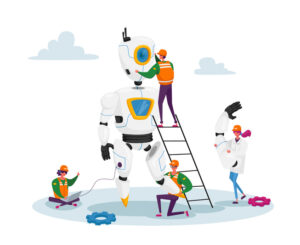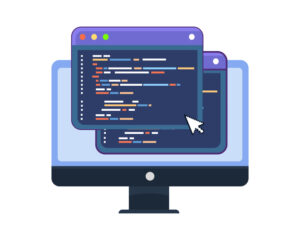When you think about data, you probably imagine charts, dashboards, or maybe a spreadsheet that’s trying its best to break your will. But who’s responsible for turning raw, messy data into those useful insights? Enter the ETL developer — the unsung hero of the data world, quietly making sense of chaos.
What Is an ETL Developer?
ETL stands for Extract, Transform, Load, which is the backbone of modern data processing. ETL developers build systems to:
- Extract data from various sources (databases, APIs, files, you name it).
- Transform that data to clean and organize it. (Think of them as Marie Kondo for data.)
- Load it into a centralized data warehouse, ready for analysis.
They’re the architects of data pipelines, ensuring information flows smoothly and reliably between systems.
What Does an ETL Developer Do?
Think of an ETL developer as a data superhero, with these key powers:
- Designing Pipelines: Building robust workflows to collect and process data.
- Data Cleaning: Removing duplicates, filling gaps, and making sure the data doesn’t lie to you.
- Performance Optimization: Speeding up processes so your dashboard doesn’t take a coffee break to load.
- Troubleshooting: Debugging issues when things go sideways (because they always do).
Skills Every ETL Developer Needs
- SQL Mastery: Writing queries is their bread and butter.
- Programming Know-How: Python, Java, or Scala are popular picks. Bonus points for dabbling in Spark.
- Data Tools Expertise: Experience with ETL tools like Informatica, Talend, or Apache Airflow is a must.
- Attention to Detail: Missing one comma can turn “profit” into “prophet” real quick.
- Big Data Familiarity: Working with Hadoop, AWS Redshift, or Snowflake is becoming increasingly common.
ETL Developer vs. Data Engineer
While there’s overlap, an ETL developer focuses specifically on data pipelines, whereas data engineers tackle the entire infrastructure, including storage and architecture. Think of the ETL developer as a surgeon and the data engineer as the hospital builder.
Why ETL Developers Matter
In today’s data-driven world, businesses rely on accurate, timely insights to make decisions. Without ETL developers, the raw data would stay raw — like trying to eat uncooked spaghetti. It’s their work that allows companies to see trends, forecast, and make informed moves.
How to Become an ETL Developer
- Get a Degree: A background in computer science, information systems, or a related field helps.
- Learn SQL: Your primary weapon in the data trenches.
- Master an ETL Tool: Familiarize yourself with platforms like Informatica, Talend, or AWS Glue.
- Gain Hands-On Experience: Internships or entry-level data roles are great starting points.
- Stay Curious: The field evolves quickly, so be ready to learn new tools and techniques.

Conclusion
ETL developers are the behind-the-scenes magicians turning raw data into gold. Their work powers everything from business intelligence to machine learning. Whether you’re a company seeking a data transformation or someone looking to step into this exciting role, ETL developers are proof that the magic happens in the pipeline.








